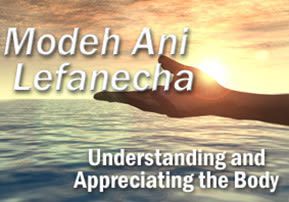
Modeh Ani Lefanecha
It is better to invest in expressing thanks in Asher Yatzar for what God has already given us rather than to have to ask for it back if God forbid...

Modeh Ani Lefanecha…
Understanding and appreciating the body
Modeh Ani – “I thank You, living, enduring King, for You have returned my soul within me in kindness, great is Your faithfulness.” These are the words with which the Jew begins each day on opening his eyes after his night-time sleep. “Thank You!”
One of the main reasons for our daily recital of these words and the ensuing morning blessings is to develop and strengthen our gratitude to God, Who created us, soul and body, crowning glory of the creation! With endless love and kindness, He provides us with all our needs each day and watches over every limb of our bodies at every moment. This is not something we may take for granted.
Our Sages understood human nature, and they knew that people do tend to take daily occurrences for granted, no matter how wonderful they may be. For this reason the rabbis instituted that we should start our day by devoting some time to reflection upon God’s kindnesses to us while reciting Modeh Ani followed by Asher Yatzar, “Who formed man…”, the blessing over our bodily functioning, Pokeach Ivrim, “Who gives sight to the blind”, Matir Asurim, “Who releases the bound”, Zokef Kefufim, “Who straightens those who are bent over” and the other morning blessings. Each day we should strive to say these words with renewed gratitude.
Awareness of the wonder of bodily functioning strengthens our motivation to take proper care of our bodies in accordance with God’s commandment. The more we recognize and understand the body’s amazing powers, the more carefully we will guard and maintain the precious gift of health. The better care we take of our bodies, the better our bodies will serve us in our service of God.
Getting to know the body
How can we teach our children appreciation and thankfulness for the wonderful body God has given them, in order to bring them to take proper care of themselves?
Every age and stage in the development of children calls for its own approach to this aspect of their education. Each boy and girl is a unique world. Parents must be sensitive to the special nature of each child in guiding him or her to develop an appreciation of the body and a sense of thankfulness to God for His kindness. Small children can obviously not be expected to attain a mature grasp of bodily functioning. Even as children grow older, their interest in what is important to adults is often limited. Nevertheless, at these critical stages in their lives, when they are beginning to learn about their bodies, there are many opportunities to develop their awareness of the wonders of bodily functioning and their sense of gratitude to the Maker of the World for His constant kindness to us.
Educating our children begins long before they enter an educational framework outside the house, even before they begin to speak. A baby sucking his mother’s milk already hears her speaking to him. The very words and expressions we use when tending little children are part of their education. The baby starts to know his name. He is conscious of different tones of voice and different kinds of feelings, positive and negative. Soon, the baby starts reacting with a smile or by crying, reactions that indicate a level of understanding.
As parents it is natural for us to want to teach and enrich our children as much as possible, even when they are babies. Soon after a baby says his first words – “Mama”, “Dada” – we usually start playfully teaching him or her the names of the different parts of the body, “Hand”, “Mouth”, “Nose”, “Eye”, “Ear”… With the right facial expressions and tone of voice, these little games convey to the small child the message that this or that part of his or her body is good, important, precious…
As children develop physically, mentally and spiritually, the scope for teaching them about the beauty and wisdom of the way our bodies function widens, whether at mealtimes, when washing and changing them, putting them to bed, playing with them and other shared times, through games, stories, songs… Children themselves are often naturally interested in certain aspects of their bodies, like why they have to eat, and why we breathe. It is good to try to arouse children’s interest in the subject, such as by pointing out the wonder of being able to lift, give or take with the hand, run and jump with the feet… Children’s questions and responses are normally the best guide to what we can communicate at any given stage.
Enhancing our children’s awareness of the wonders of their bodies and thankfulness for them is not separable from the education we must give them in each of the specific areas of healthcare, such as cleanliness and hygiene, safety, proper diet, movement and exercise. This awareness should be an integral part of the teaching and guidance we give them in each area.
For example, in the familiar case of the little child who comes running to Mummy with a scratch crying that he’s been “cut”, we can soothe the child and even “heal” the “cut” with words. As we put on a plaster, we can calm the child by telling him, “It could have been much more serious, and Baruch Hashem it’s only a scratch…” and, “Let’s pray to Hashem to heal it. BeEzrat Hashem, it will soon get better.” With an extra kiss, the boy runs off happy and content.
In the area of hygiene and cleanliness, one of the early stages in children’s education is toilet training. Part of this is explaining to the child that it is necessary to go to the toilet when he or she feels the need, and that this is a mitzvah. According to the child’s level of understanding, we can explain that God created our body’s way of digesting food in the stomach and intestines so that it takes out the good from our food, absorbing it in our bodies, while expelling the waste in the food, which would otherwise be harmful to the body. Our part is that we must go to the toilet when we feel the need in order to help our body clean itself.
When teaching our children to appreciate and take proper care for their bodies, it is unnecessary to enter into detailed explanations of the different body parts, especially those that are of no relevance to children. What is important is to provide our children with a basic practical understanding of the main body parts and systems relating to areas where they have a role to play in caring for their health. These include digestion and elimination, which relate to proper nutrition, cleanliness and hygiene, blood circulation and breathing, bones, joints and muscles, which relate to proper movement, exercise and avoidance of injury, and so on. The goal is to teach the children what they need to know about these aspects of the body so that they will understand the importance of taking proper care in each area.
As a general rule, when we seek to teach our children healthy habits of self care, physical and mental, we must make sure that the words and concepts we use express the Torah view of man and his body as the work of the hands of God. He watches over us every day and every moment, and He wants us to play our part and do what is necessary to take proper care of ourselves: “And take good care of your souls”.
The blessing of Asher Yatzar
Several times every day we have an opportunity to express our gratitude to God for the wonderful working of our body when we say the blessing Asher Yatzar after relieving ourselves. Asher Yatzar is the blessing that our Sages instituted over the wisdom in the design of man’s body and the wonders of its functioning. After relieving ourselves, cleaning our bodies and washing our hands, we must pause for a moment from all our activities and focus exclusively on saying the blessing, reflecting on God’s wonders and expressing our gratitude for them.
A number of sources mention that recital of the blessing of Asher Yatzar with attention to its meaning is itself conducive to good health. When a person is aware of and appreciates the kindness someone does him, the benefactor is happy to shower him with even more kindness. How much more so will God, whose goodness is unending, increase His goodness and kindness to us if we truly appreciate them.
Often people begin to appreciate health more when, God forbid, it is lacking, forcing them to pray and expend great effort in trying to restore it. It is better to invest in expressing thanks in Asher Yatzar for what God has already given us rather than to have to ask for it back if God forbid we lose it. In Asher Yatzar our Sages provided us with a beautiful way of expressing our thanks to God for the wonderful body He has given us.
Teaching children to say Asher Yatzar
Asher Yatzar is one of the first blessings with which we open our day. It is also among the first blessings that children learn. At this stage teachers enter as partners with the parents in the work of educating the children. At first the children are taught to recite the blessing at the start of each day. Later on they are taught to recite the blessing each time they attend to their needs after washing their hands.
As part of the education of the children in awareness of the wonders of the body and gratitude for God’s kindness, it is necessary to explain clearly the simple meaning of Asher Yatzar and the great importance of saying it properly. We need to use our imagination to vividly communicate the wonder of the body’s different parts and functioning, digestion, circulation and breathing, vision, hearing, smell, taste, touch… Not only must we arouse the children’s interest in the amazing wonder of the body. We must also teach them Who created it, and that they must give expression to their gratitude in the blessing of Asher Yatzar.
Young children are not expected to understand the deep meaning of the blessing and to recite it with full attention every time. Nevertheless, it is good to habituate them from an early age to enunciate the words of the blessing properly. Parents need to emphasize repeatedly the importance of giving proper attention to saying Asher Yatzar so that it should not become a matter of thoughtless repetition. It can help to encourage children with special campaigns, competitions, prizes and the like. In many homes an attractively printed version of Asher Yatzar is hung above the wash basin outside the restroom.
May we and our children always be able to recite Asher Yatzar in thanks to God that our bodies are healthy!
***
With permission from www.azamra.org




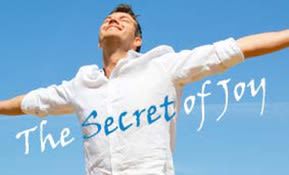
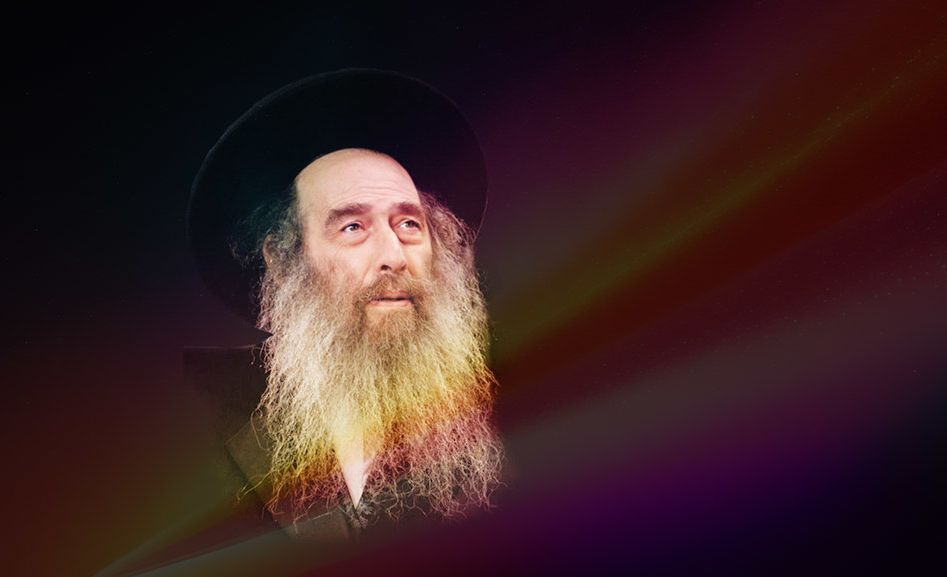
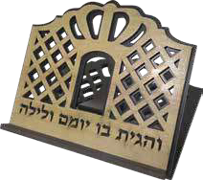
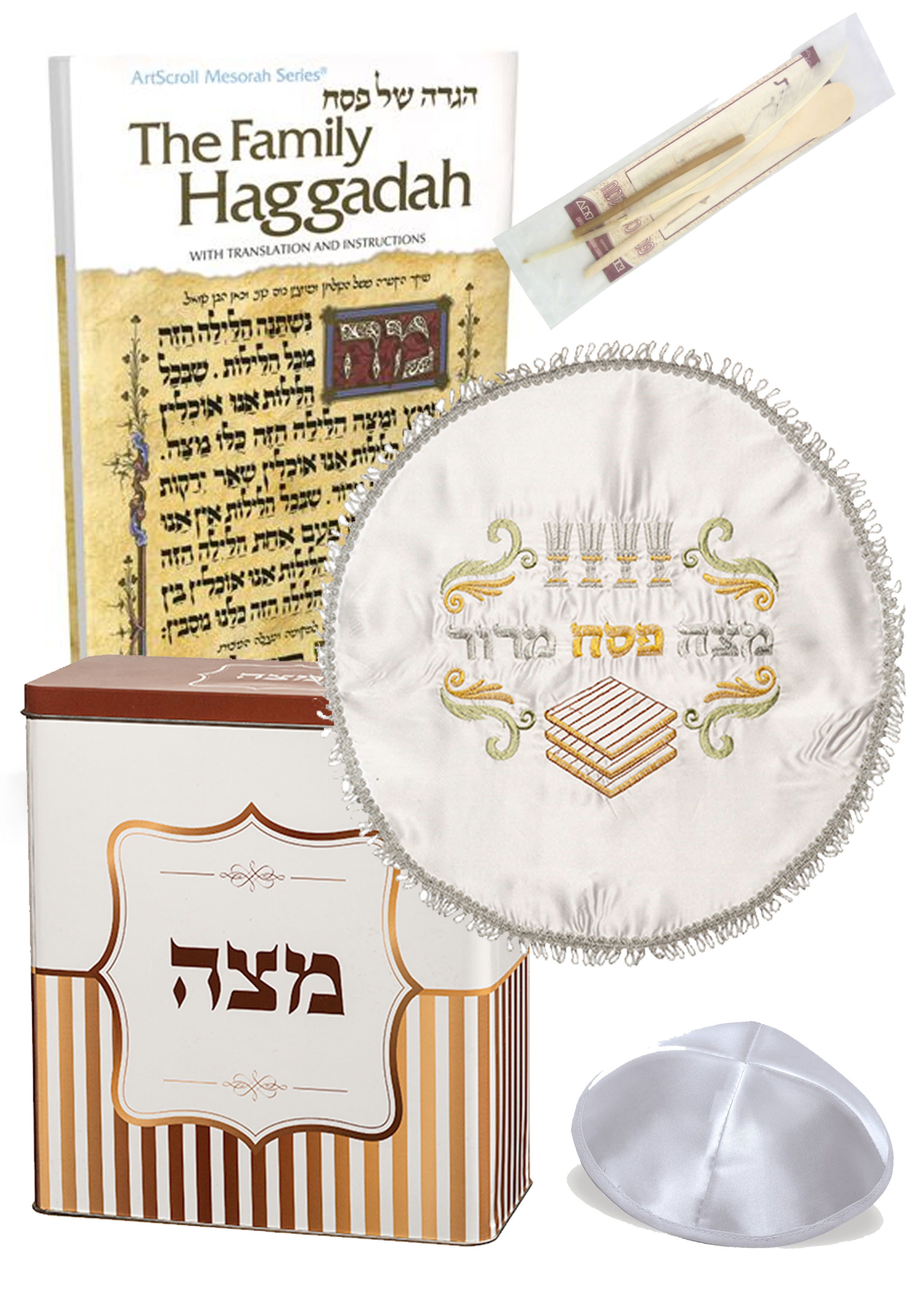
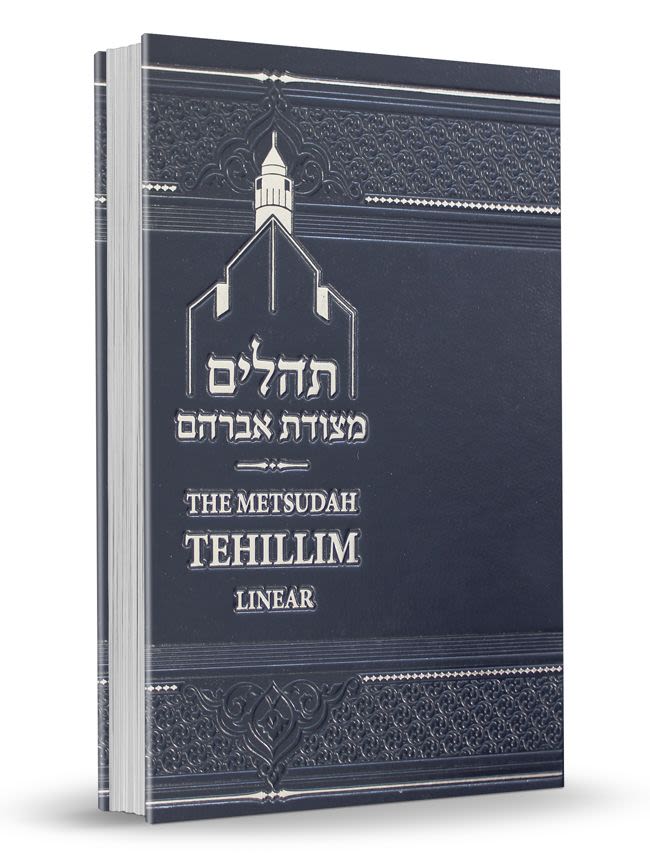
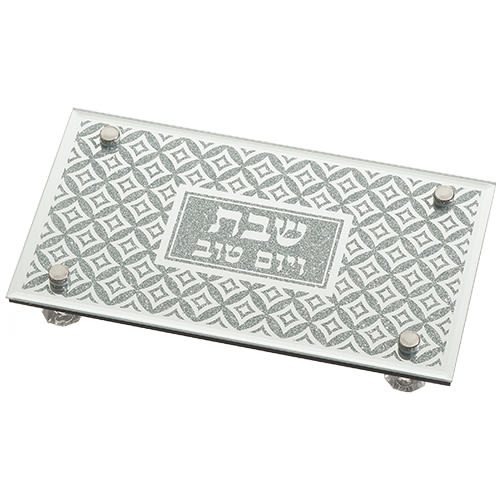
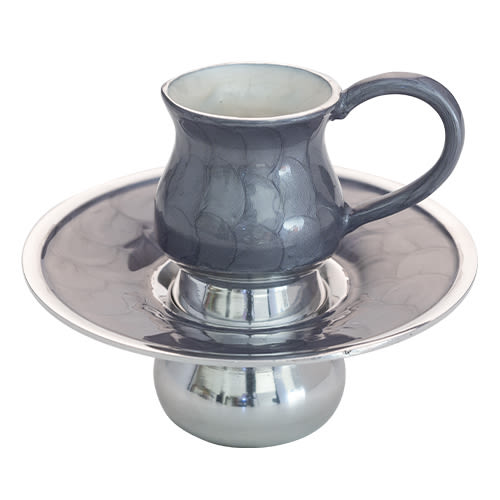
Tell us what you think!
Thank you for your comment!
It will be published after approval by the Editor.